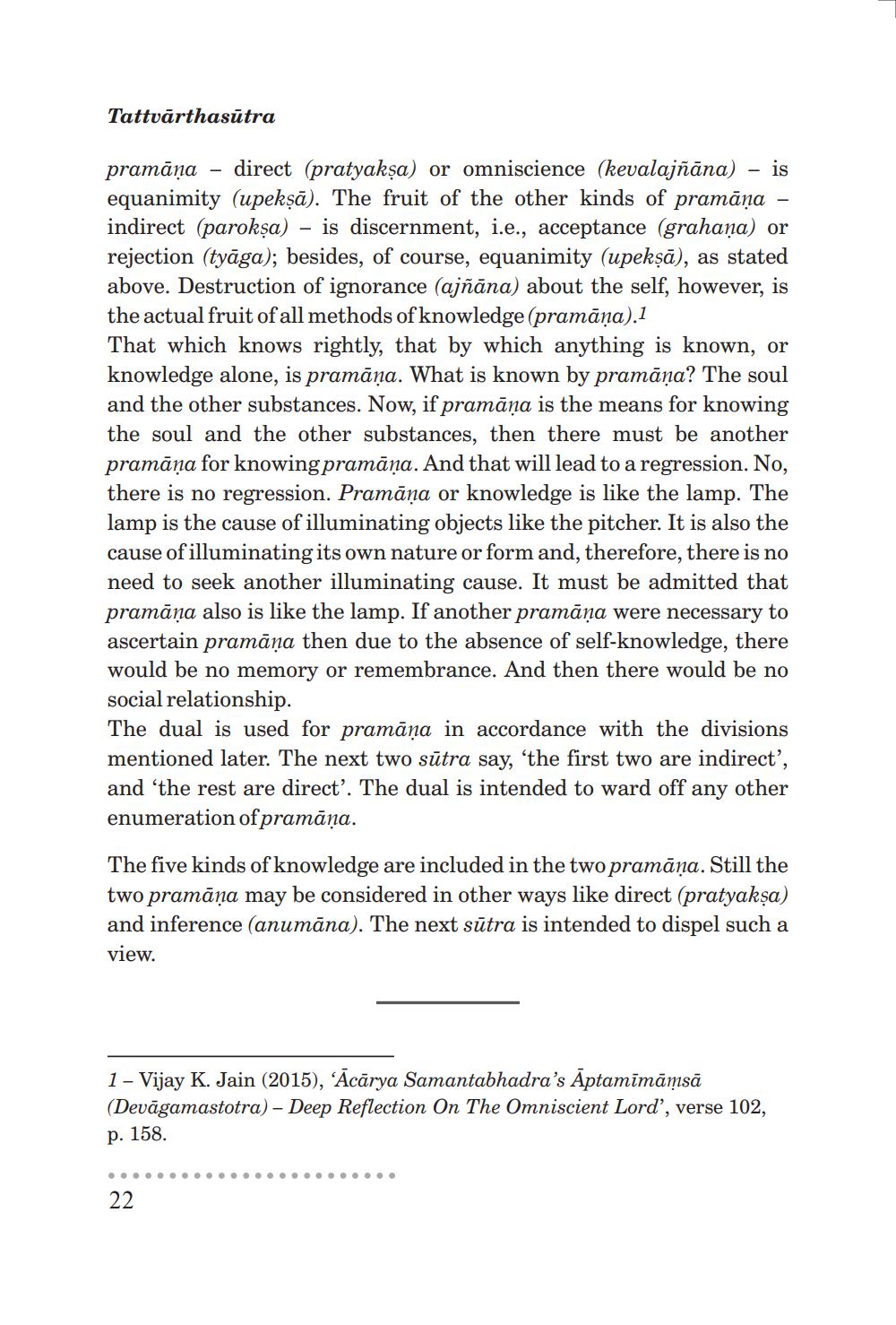________________
Tattvarthasūtra
pramāņa direct (pratyakṣa) or omniscience (kevalajñāna) - is equanimity (upekṣā). The fruit of the other kinds of pramāņa indirect (parokṣa) - is discernment, i.e., acceptance (grahana) or rejection (tyāga); besides, of course, equanimity (upekṣā), as stated above. Destruction of ignorance (ajñāna) about the self, however, is the actual fruit of all methods of knowledge (pramāna).1
That which knows rightly, that by which anything is known, or knowledge alone, is pramāna. What is known by pramāṇa? The soul and the other substances. Now, if pramāna is the means for knowing the soul and the other substances, then there must be another pramāṇa for knowing pramāṇa. And that will lead to a regression. No, there is no regression. Pramāṇa or knowledge is like the lamp. The lamp is the cause of illuminating objects like the pitcher. It is also the cause of illuminating its own nature or form and, therefore, there is no need to seek another illuminating cause. It must be admitted that pramāņa also is like the lamp. If another pramāņa were necessary to ascertain pramāņa then due to the absence of self-knowledge, there would be no memory or remembrance. And then there would be no social relationship.
The dual is used for pramana in accordance with the divisions mentioned later. The next two sūtra say, 'the first two are indirect', and 'the rest are direct'. The dual is intended to ward off any other enumeration of pramāna.
The five kinds of knowledge are included in the two pramāna. Still the two pramāna may be considered in other ways like direct (pratyakṣa) and inference (anumana). The next sūtra is intended to dispel such a view.
1- Vijay K. Jain (2015), 'Acarya Samantabhadra's Aptamīmāmsā (Devagamastotra) - Deep Reflection On The Omniscient Lord', verse 102, p. 158.
22




